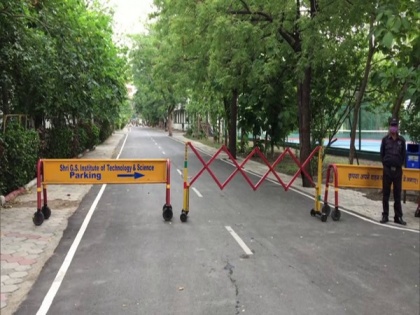Educational institute in Indore declares 'no vehicle zone' on campus in effort to save squirrels
By ANI | Published: July 11, 2021 02:19 PM2021-07-11T14:19:10+5:302021-07-11T14:30:03+5:30
In an effort to save the lives of squirrels, the administration of the Govindram Seksaria Institute of Technological Sciences (SGSITS) in Indore has declared 'no vehicle zone' in an area that usually has high traffic leading to deaths of these rodents.

Educational institute in Indore declares 'no vehicle zone' on campus in effort to save squirrels
In an effort to save the lives of squirrels, the administration of the Govindram Seksaria Institute of Technological Sciences (SGSITS) in Indore has declared 'no vehicle zone' in an area that usually has high traffic leading to deaths of these rodents.
Staff, students and campus residents have to either walk or cycle across an 800-meter stretch. No cars or other four-wheelers are permitted after the move was implemented on campus.
According to SGSITS Director Rakesh Saxena, squirrel deaths started to increase after COVID-19 lockdown restrictions were relaxed and vehicles started to enter the campus.
"The squirrel population increased quite a bit during the COVID-19 lockdown and there are about 1,500 on the campus. In the front and middle of the campus, there are two large roads about 800 metres long. After lockdown restrictions were lifted, we noticed corpses of squirrels on the road," Saxena told ANI.
He added that despite spreading awareness about the issues to the residents of the campus, squirrels kept dying, forcing the campus administration to create a 'no vehicle zone'.
Driving and parking cars on the stretch is not permitted. People are, however, allowed to use two-wheelers and cycles in the 30-acre campus, where about 6,000 students and staff reside.
According to Alex Kutty, SGSITS garden in charge, several other creatures are also a part of the university's environmental ecosystem.
"We have also developed an eco-system with high-oxygen producing plants. We even have a bee colony on the campus and efforts are underway to increase the butterfly population. From snakes to rabbits to seasonal birds, several animals stay on this campus," Kutty told ANI.
( With inputs from ANI )
Disclaimer: This post has been auto-published from an agency feed without any modifications to the text and has not been reviewed by an editor
Open in app